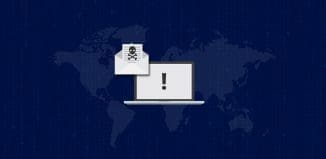Who Defends the Virtual Countries of Tomorrow?
This post is also available in:  עברית (Hebrew)
עברית (Hebrew)

Does a virtual country still need real military protection? And if so, who provides it? Short answer: Yes, and the United States.
President Barack Obama made a visit to Estonia on Wednesday, where he praised the country’s government in unsubtle terms as a core NATO ally. “As a high-tech leader, Estonia is also playing a leading role in protecting NATO from cyber threats,” he said. “Estonia is an example of how every NATO member needs to do its fair share for our collective defense.”
Estonia serves as the host of the NATO Cooperative Cyber Defense Center of Excellence. In many ways, it’s NATO’s cyber tip of the spear in Europe. Estonia is also a world leader in e-governance. Citizens have unprecedented access to health, education, and government services online and can even exercise their right to vote digitally.
In May, the government of Estonia announced the launch of a “digital country” initiative. Estonia’s future e-citizens will open bank accounts, start online businesses, pay taxes online or reinvest in the country tax free. This could significantly increase Estonia’s geopolitical clout.
This matters to U.S. security, since as a country with an increasingly antagonistic relationship with Russia, Estonia is about to grow its cyber profile by a factor of more than seven and they’ll be looking to the United States for protection.
At least, that’s what history suggests. In 2007, Estonia was the victim of one of the most famous coordinated cyber attacks in history. Russian-aligned hackers, which many believed were acting under orders from the Kremlin, launched distributed denial of service or Denial of Service attacks affecting government and media outlets. The impact, for a country that’s highly reliant on the Internet, was devastating.
Estonia allocates 40 million euros to cyber security each year, about 0.5% of its annual spending, yet this by no means immunes it from cyber attacks or cyber warfare. The responsibility of helping Estonia fight off cyber threats, if they continue to escalate, could fall to U.S. Cyber Command. With a $500 million annual budget, Cyber Command presides over the NSA. In the future, European governments might be asking the NSA for assistance, which would mark quite an ironic reversal. As virtual countries grow, and tensions between NATO members and Russia rise, so do the stakes of cyber warfare as well as the likelihood of greater U.S. involvement.





























